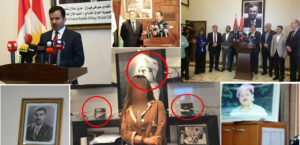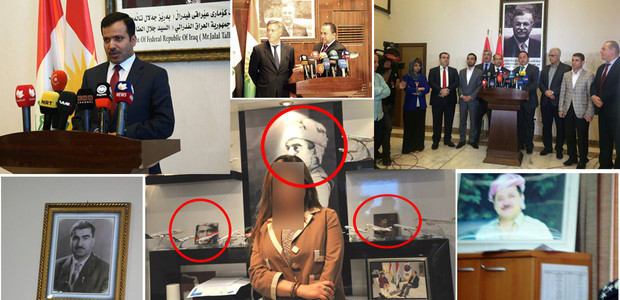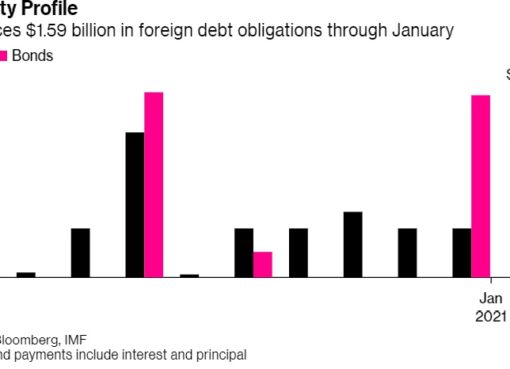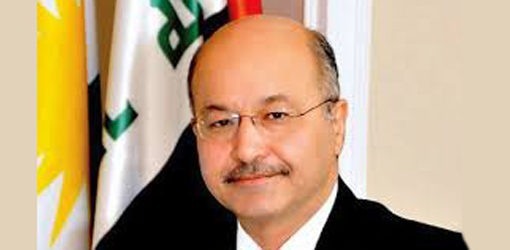
One is no longer in the job, the other is almost out. Yet a rule that forces locals to hang portraits of senior politicians in their offices remains in force. Locals debate whether that is a good thing for democracy.
A Hanging Offence:
Iraqi Kurdistan’s Political History, As Told In Portraits
Honar Hama Rasheed
One is no longer in the job, the other is almost out. Yet a rule that forces locals to hang portraits of senior politicians in their offices remains in force. Locals debate whether that is a good thing for democracy.
31.05.2016 | Sulaymaniyah
A couple of months ago, the Speaker of Iraqi Kurdistan’s Parliament, Yusuf Mohammed returned to the semi-autonomous region by way of Sulaymaniyah airport. He had just been to Sweden and held a press conference in the airport’s VIP lounge to tell local journalists what he’d been doing in Europe. A few days later he was followed by Salim al-Jibouri, the Speaker of the Iraqi parliament from Baghdad, who also held a press conference about why he was visiting, and in the same room as Mohammed.
Both of these senior politicians got a lot of attention and later on reports about them, on local TV and in news photography, showed them standing in front of pictures of senior Iraqi Kurdish politician, Jalal Talabani. On the picture was written, in three languages: “Mr. Jalal Talabani, President of the Iraqi Republic”.
Only thing is, Talabani isn’t. At least not any more. As head of one of the region’s most important parties, the Patriotic Union of Kurdistan, or PUK, Talabani was a leading force in Iraqi Kurdish politics for years. But following a stroke in 2012 he was hospitalized and then slowly but surely, when there was no major recovery, he was sidelined. The current President of Iraq – since mid-2014 – is Fuad Masum, another senior Iraqi Kurdish figure.
So why hasn’t this picture been removed yet? Especially when it’s hanging in such a high profile area.
I believe a lot of people don’t really want the pictures in their offices, but they don’t dare to remove them.
The picture was not removed because of “this man’s status”, Tahir Abdullah, the managing director of Sulaymaniyah International Airport, told NIQASH.
There are plans to change the pictures, Abdullah says. They have started in other parts of the airport but haven’t quite reached the VIP lounge yet.
It could also be because of the way that an older piece of legislation in Iraqi Kurdistan is still honoured. Back in the 1990s when Iraqi Kurdistan was basically run as two separate areas within one region, there were pictures of Talabani hung in the areas that the PUK controlled – Sulaymaniyah, Karmayan and Halabja – and pictures of Massoud Barzani, the head of the Kurdistan Democratic Party, or KDP, in areas that his party controlled: Erbil and Dohuk.
Seven years later the two parties united in one power-sharing, regional administration and politicians decided that pictures of Talabani and Barzani should appear in one picture frame, inside all government offices.
The new rule even specified which kind of pictures could be used and the colour they should be. It said that Talabani should be wearing a black suit and tie and Barzani should appear in traditional Kurdish costume, wearing a traditional red turban.
Not everyone obeyed, of course. Which offices hang which pictures today still indicate which political party is dominant in which area. The old splits are marked by these glassy-eyed portraits.
And that rule is still being obeyed today. Even though Barzani’s term as President of the Iraqi Kurdish region has officially ended and his role is now the subject of bitter dispute.
One Erbil local, Hayman Farid, and his friends actually launched a campaign to try and get the political pictures removed from public places.
Farid and his group believe that, if Iraqi Kurdistan is to move into the modern age, politically, socially and economically, these worshipful pictures of political leaders need to be removed.
“Whenever we meet international delegations, they always ask us why we have these pictures everywhere,” Farid notes.
Any manager working for the local authorities who doesn’t hang the pictures up could, in fact, be punished. “We collected the names of many managers who were punished because they didn’t hang the pictures,” confirms Farid of the anti-portrait campaign. “Some of them were even dismissed for this.”
Mohammed Rashid Meera, who manages stores for the Department of Education in Sulaymaniyah, is not one of these – he is proud of the fact that he has no such political portraits in his office.
When he started work in the department in 2010 he removed the portraits so he could redecorate the office.
“And I never put them back again,” Meera told NIQASH. “A lot of people got angry at me but I was able to stick with the decision. I believe that a lot of people don’t really want the pictures in their offices, deep down, but they don’t dare to remove them.”
Barzani and Talabani are perceived by many locals as the founding fathers of the semi-autonomous Iraqi Kurdish region – disrespecting their pictures is akin to treason for some, or at the very least, a lack of patriotism.
Despite the fact that Farid’s group were unsuccessful in their attempts, local politicians have started debating the rule.
When the rule was made, the KDP dominated the Iraqi Kurdish Parliament, says PUK member, Goran Azad. The KDP stated that these pictures of Barzani should be behind any officials during formal ceremonies. “But it was a form of coercion,” Azad argues.
“For now, there are no plans to remove the rule about hanging the pictures,” Safeen Dizayee, the spokesperson for the Iraqi Kurdish government, told NIQASH. “It’s true that Talabani is no longer Iraq’s President but given the fact that he is still a prominent Kurdish leader, we have taken no steps to remove his pictures.”
Source: Niqash, 31.05.2016 | Sulaymaniyah








Comment here